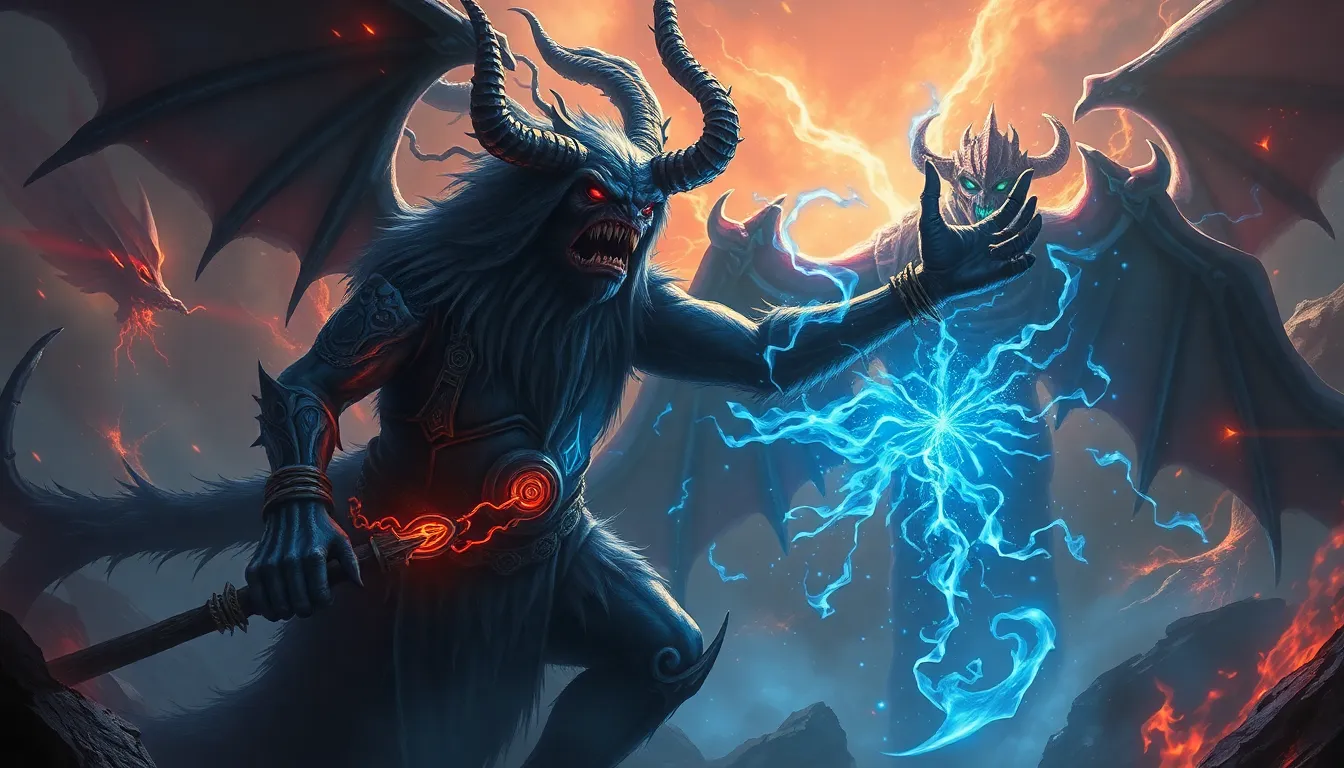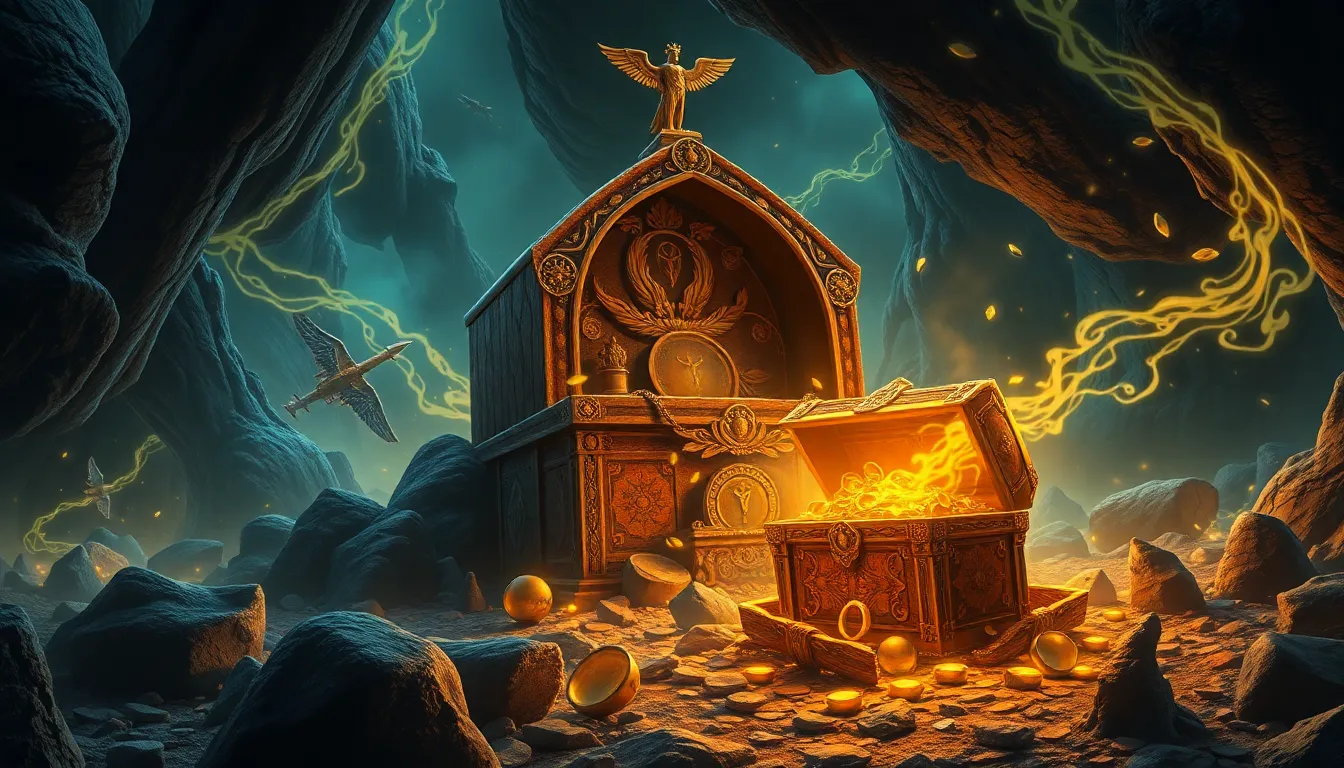Divine Intervention: When Gods Join the Quest
Introduction to Divine Intervention
Divine intervention refers to the involvement of a deity or deities in the affairs of humans, often altering the course of events in ways that reflect the divine will. In mythology and religion, this concept is significant, as it underscores the belief that gods can and do influence the lives of mortals. Whether through direct action or subtle signs, divine intervention serves as a reminder of the interconnectedness of the human and the divine.
Historical Context of Divine Intervention
Throughout history, ancient civilizations have held a deep belief in the presence of divine beings who actively participate in human affairs. From the Sumerians to the Greeks, these cultures crafted rich narratives that depicted gods as powerful entities capable of shaping destinies.
Examples from early texts illustrate this belief:
- The Epic of Gilgamesh: This ancient Mesopotamian epic portrays the gods as direct influencers of human fate, often intervening in personal quests and struggles.
- Homer’s Iliad: In this epic, gods like Zeus and Athena frequently intervene in the Trojan War, guiding and manipulating the actions of heroes.
Types of Divine Intervention in Mythology
Divine intervention can manifest in various forms, each with distinct implications for the human experience:
- Direct intervention: Gods may physically alter events, such as causing natural disasters or granting victory in battles.
- Indirect intervention: This involves providing signs, dreams, or omens that guide human actions without direct interference.
- Symbolic intervention: Myths often serve as allegories, conveying moral lessons through the actions of divine beings.
Case Studies: Famous Myths of Divine Intervention
Numerous myths across cultures highlight the theme of divine intervention:
- Greek mythology: In The Odyssey, the goddess Athena provides guidance to Odysseus, aiding him in his perilous journey home.
- Hindu epics: In the Bhagavad Gita, Krishna serves as a charioteer and divine guide, offering wisdom and support to Arjuna during a critical moment of moral dilemma.
- Norse mythology: Odin frequently influences the fates of heroes, demonstrating the connection between divine will and human courage.
The Role of Divine Intervention in Literature
Literary works often explore the role of divine beings, shaping narratives and character arcs:
- Dante’s Divine Comedy: The presence of divine figures serves to guide Dante through the afterlife, illustrating the moral framework of his journey.
- Shakespeare’s Plays: Shakespeare often incorporates divine elements, such as in A Midsummer Night’s Dream, where Puck’s interventions reflect the chaotic influence of the supernatural.
These divine figures not only propel the plot forward but also foster character development, often forcing characters to confront their beliefs and choices.
Psychological and Philosophical Implications
The concept of divine intervention raises profound psychological and philosophical questions:
- Many people seek divine assistance during times of struggle, reflecting a deep-rooted human need for support beyond the material world.
- Philosophical debates often arise regarding the balance of fate versus free will, especially when divine actions appear to dictate outcomes.
Modern Interpretations of Divine Intervention
In contemporary literature and pop culture, gods continue to play significant roles in quests and narratives:
- Percy Jackson series: This young adult series features Greek gods as integral characters who influence the lives of demigods, intertwining ancient mythology with modern adventure.
- Movies and TV: Films like Clash of the Titans and series like American Gods illustrate the continued fascination with divine beings and their impact on human stories.
Cultural Variations in the Concept of Divine Intervention
Different cultures have unique beliefs about divine aid, which reflect their values and worldviews:
- African myths: Many African cultures view ancestors as divine figures who intervene in daily life, offering guidance and protection.
- Asian beliefs: In Hinduism and Buddhism, deities often provide spiritual insights and assistance in achieving enlightenment.
- Indigenous traditions: Many Indigenous cultures believe in spirit beings that intervene in the natural world, guiding human actions and ensuring harmony.
These beliefs shape societal norms and values, illustrating the diverse interpretations of divine intervention.
Critiques and Controversies Surrounding Divine Intervention
Despite its historical significance, the concept of divine intervention faces skepticism in the modern world:
- With the rise of scientific reasoning, many question the validity of divine involvement in human affairs.
- Historically, narratives of divine intervention have been misused to justify wars, colonization, and oppression, raising ethical concerns about their implications.
Conclusion: The Enduring Legacy of Divine Intervention
Divine intervention remains a powerful theme in mythology, literature, and contemporary society. It reflects humanity’s enduring quest for meaning and support beyond our capabilities. As we navigate the complexities of life, the belief in divine assistance continues to offer hope and inspiration, reminding us that we are part of a larger narrative that transcends our individual experiences.



